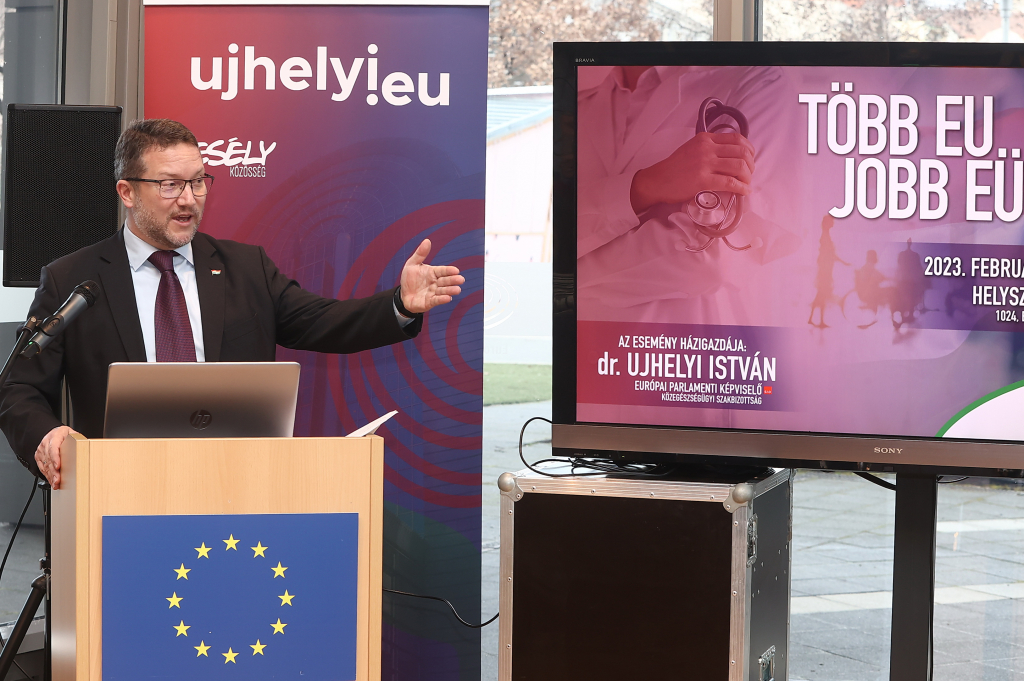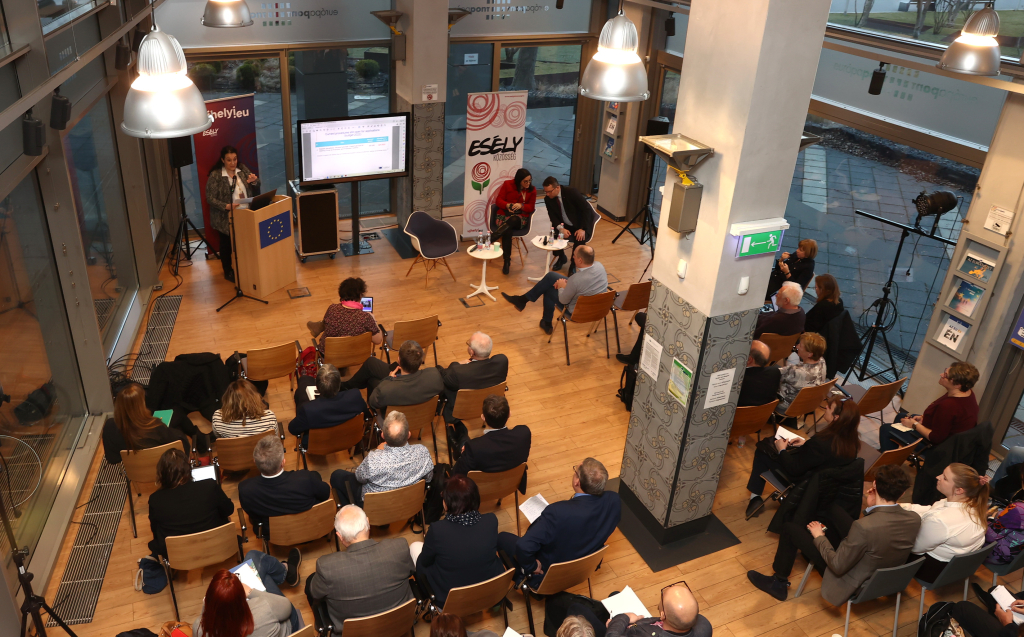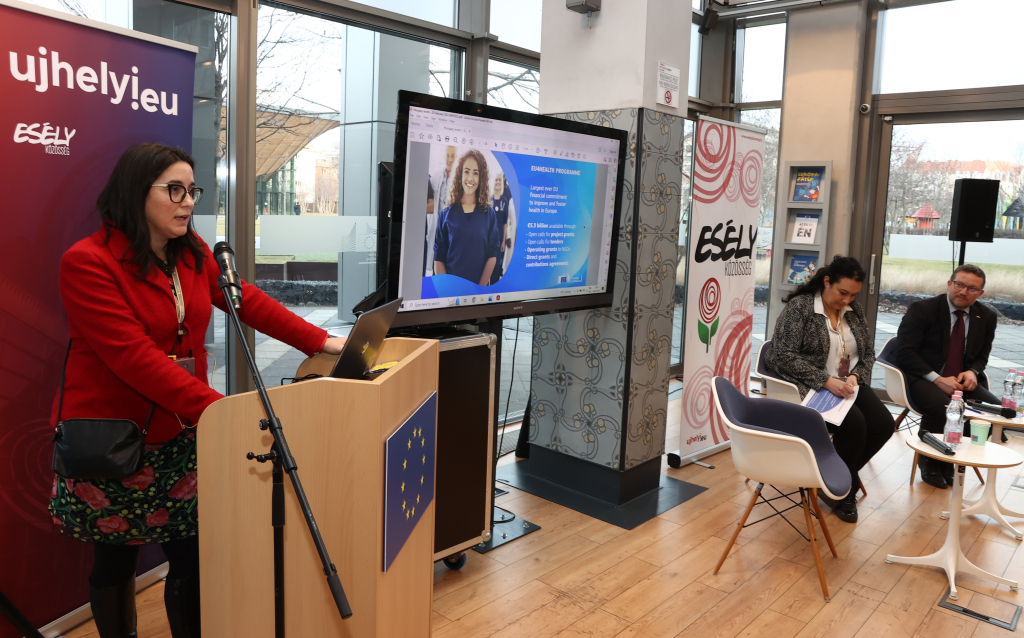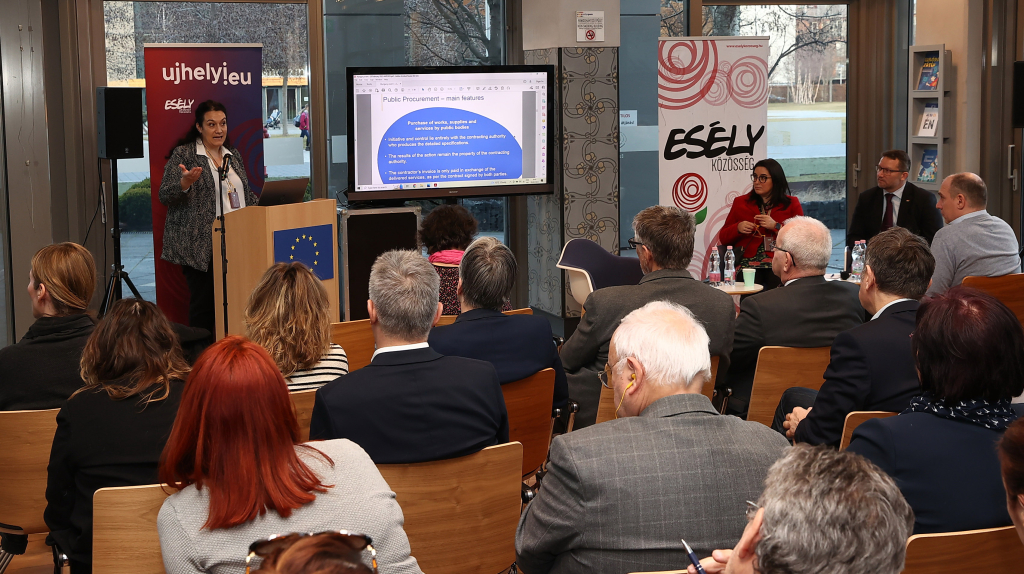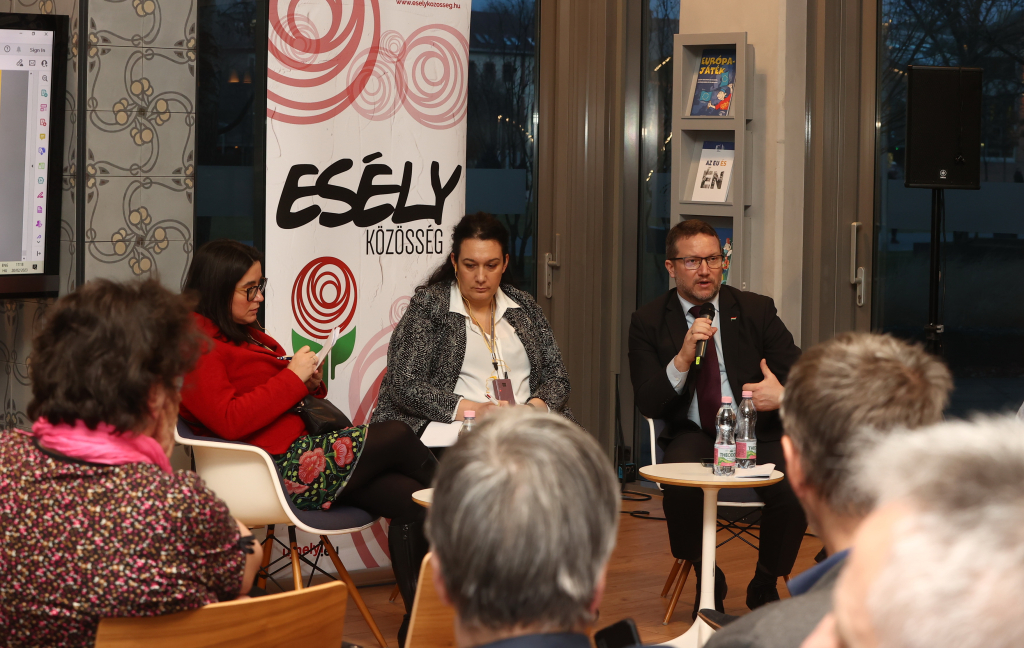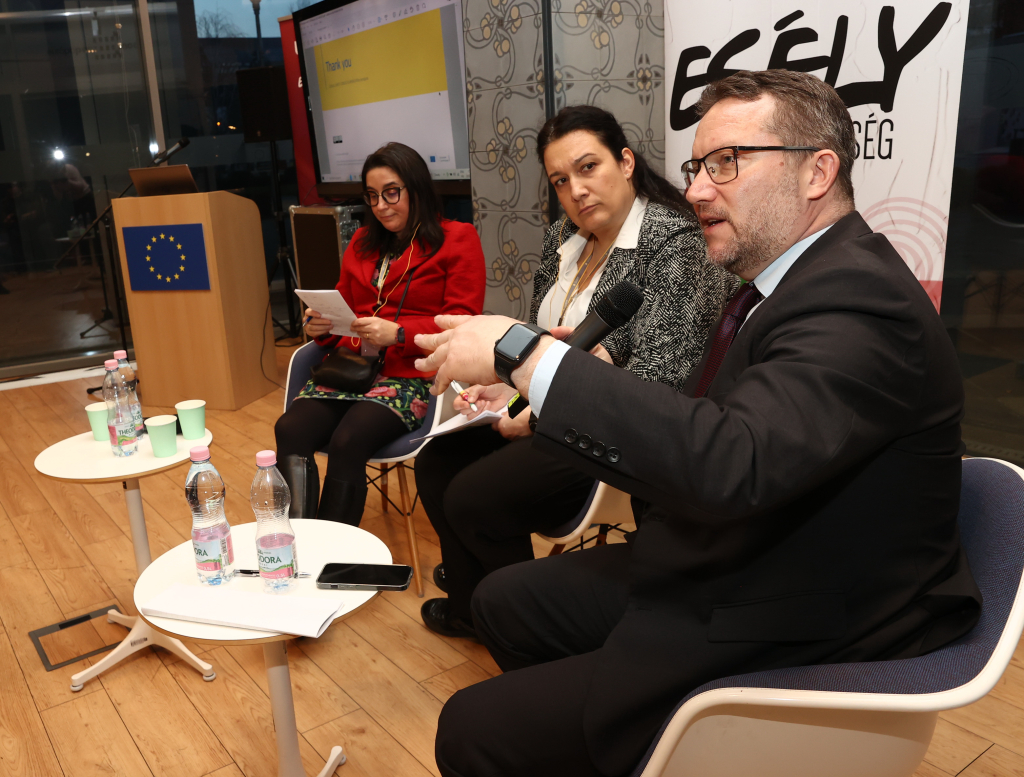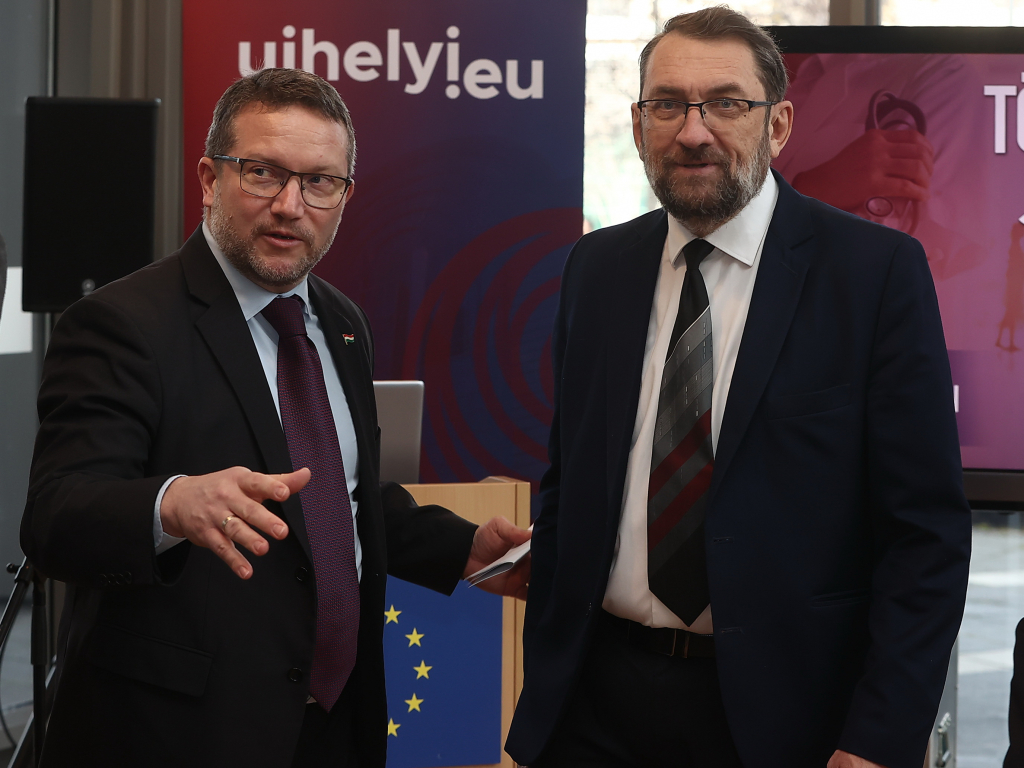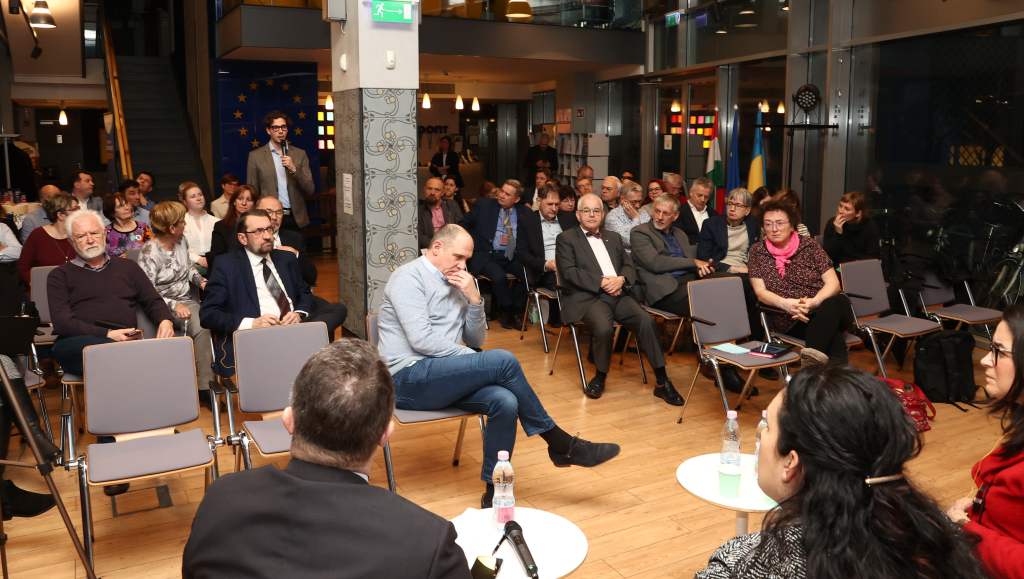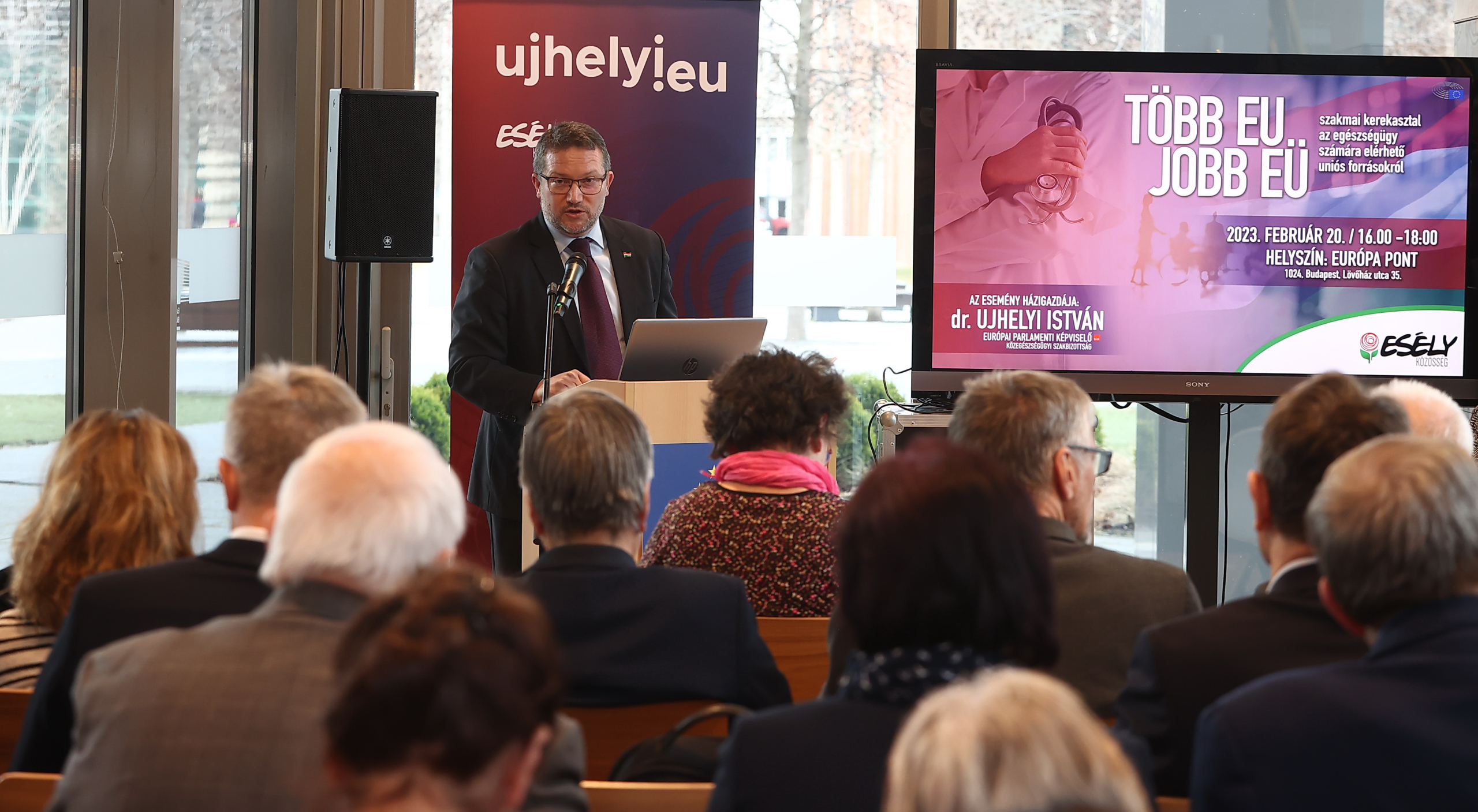Published: 22.2.2023
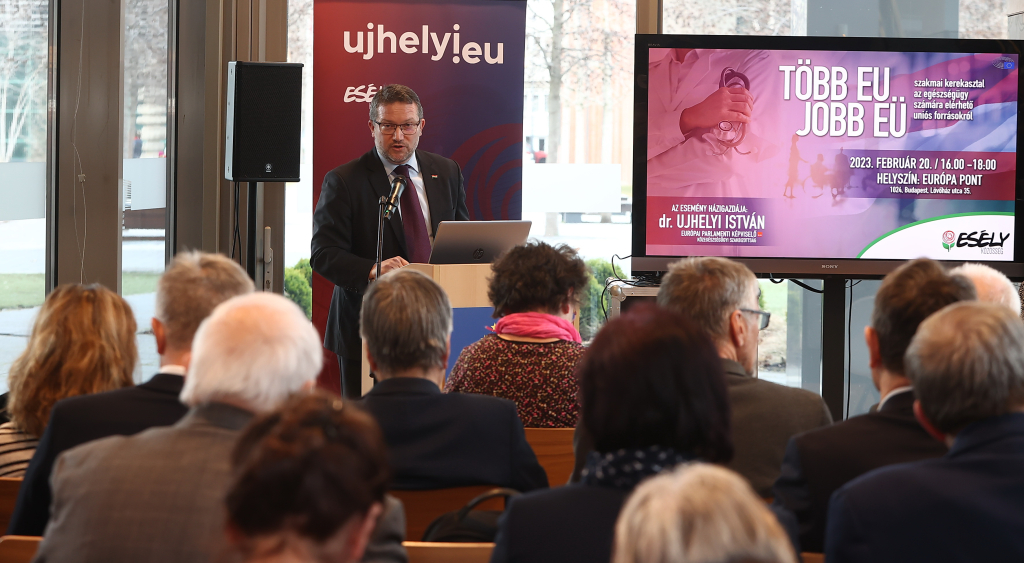
More than €5 billion in direct funding for health improvements and programmes could be drawn down in the coming years, even if EU funding is frozen because of the government and remains blocked. Hungarian players in the sector have much catching up to do, as there have hardly been any successful applications from Hungary so far, revealed a professional roundtable discussion convened by István Ujhelyi.
„More EU = Better Health” – this was the title of a professional forum convened by Member of the European Parliament’s Public Health Committee MEP István Ujhelyi, at Europe Point in Budapest on Monday afternoon. The event was attended by representatives of a number of health professional organizations, NGOs, advocacy groups, private and public institutions and local authorities (such as President of the Hungarian Medical Chamber Gyula Kincses and former hospital director and current mayor of Újbuda, Imre László), who were given the opportunity to receive information on the €5.3 billion EU budget available for direct funding of health development and programmes. According to the MEP, a senior representative of one of the government’s professional institutions concerned was also present at the event, which he welcomed as a positive development.
In his opening speech, István Ujhelyi, founder of the Community of Chance, recalled that as a child, helping his father, a general practitioner, he had experienced first-hand the immense disparities in access to healthy living and decent healthcare in Hungary. He said that this had not changed significantly since the 1980s and that the situation had only worsened.
„That is why I set a goal a few years ago to ensure that every European citizen in the European Union has better access to health and related services and that there is a minimum quality of service that must be guaranteed in all Member States. After all, how can it be that someone in Hungary is three times more likely to die of a hospital infection than someone in Germany? How come we doing so little to prevent the mass exodus of specialists from the Hungarian healthcare system?” Ujhelyi asked.
He added that he first convened a meeting of health professionals in the same place three years ago, when he first consulted the sector on this proposal, and that this process later served as a starting point for the European Health Union programme, which has been expanding and developing ever since. István Ujhelyi stressed that although the EU is working to give more attention to health, the field remains the exclusive competence of Member States, so it was not surprising that the Hungarian government did not welcome with open arms his proposal on quality of service criteria, arguing that since the organisation and financing of healthcare is the exclusive competence of the government, it would violate the „sovereignty” of the Hungarian State.
Among other things, the MEP also said „I have a lot of political battles” in the new EU budget having a 12-fold increase in the funds available for health, and that these are directly available funds that can be called on even if other funds for Hungary remain frozen due to the rule of law concerns.
At the beginning of the forum, Member of Parliament and member of the DK shadow government responsible for health, Zoltán Komáromi also spoke. He pointed out that the dissatisfaction of the population with the quality of healthcare is growing year by year, but the poor statistics of international surveys also give clear evidence of the situation in Hungary. Komáromi called for professional cooperation in this regard, saying that if they do not start in the right direction and fight persistently, all efforts may become futile.
The main speakers of the round table discussion, convened by István Ujhelyi, were Sector Head for the EU4Health Framework for Funding Applications Marilena Di Stasi and Programme Manager Chiara Giusto, from the European Commission’s Executive Agency for Health and Digital Executive Agency (HADEA). The two experts provided the audience with a substantial and detailed briefing on the work programme and the funds that will be allocated in the coming period. Among other things, it was explained that, in addition to open calls for project grants, funds can also be accessed through open calls for proposals and contribution agreements for direct grants.
The Commission representatives said that the EU4Health framework aims to improve healthcare, reduce cross-border threats to health, strengthen the responsiveness and resilience of public health systems, improve coordination between Member States and improve the availability, accessibility and affordability of medicines and medical devices, among other things.
In her presentation, Marilena Di Stasi said that under this health framework, around €735 million will be spent on various projects this year alone, a significant proportion of which will be grants, with around a third going for equipment. EU agency staff gave a detailed presentation of the websites where applications and other documentation are available, as well as the upcoming calls for proposals this year. The presentation showed that the bulk of the funding projects will be for cancer-related programmes as part of the EU’s cancer strategy, but that various training projects, digitisation programmes and mental health actions will also be eligible for EU support under this framework, as will direct funding for the operational support of NGOs and research into the living conditions of cancer survivors, for example.
The EU agency also said that all Hungarian stakeholders are encouraged to apply for the resources available in the EU4Health framework, as there have been very few Hungarian applications that led to successful payment.
During the forum part of the professional event, several comments were made, including by medical students and cancer patients, but President of the Hungarian Medical Chamber Gyula Kincses also asked to speak. He told the Commission representatives that it would be important to carry out a comprehensive measurement of the quality of care in Hungary, not only in institutions but also among the population, both in public and private healthcare. In this context, István Ujhelyi also noted that the content of the calls for proposals planned for this year was still lacking and that he would therefore put pressure on the decision-makers concerned to ensure that EU calls for proposals are not only for specific topics but also for surveys on important fundamental issues and their solutions in the near future. In response, the EU agency officials also confirmed that they regularly hold informal consultations where representatives of the sector can make these suggestions and that the proposals made at the forum in Budapest would be taken forward to the appropriate decision-making levels.
At the end of the workshop, István Ujhelyi indicated that he would continue his efforts to implement the European Health Union and, if he won another mandate in next year’s EP elections, he would be able to follow up on the initial successes and progress made by developing a set of quality criteria for healthcare, which would mean higher patient safety and better working conditions.
Budapest – 20/02/2023
